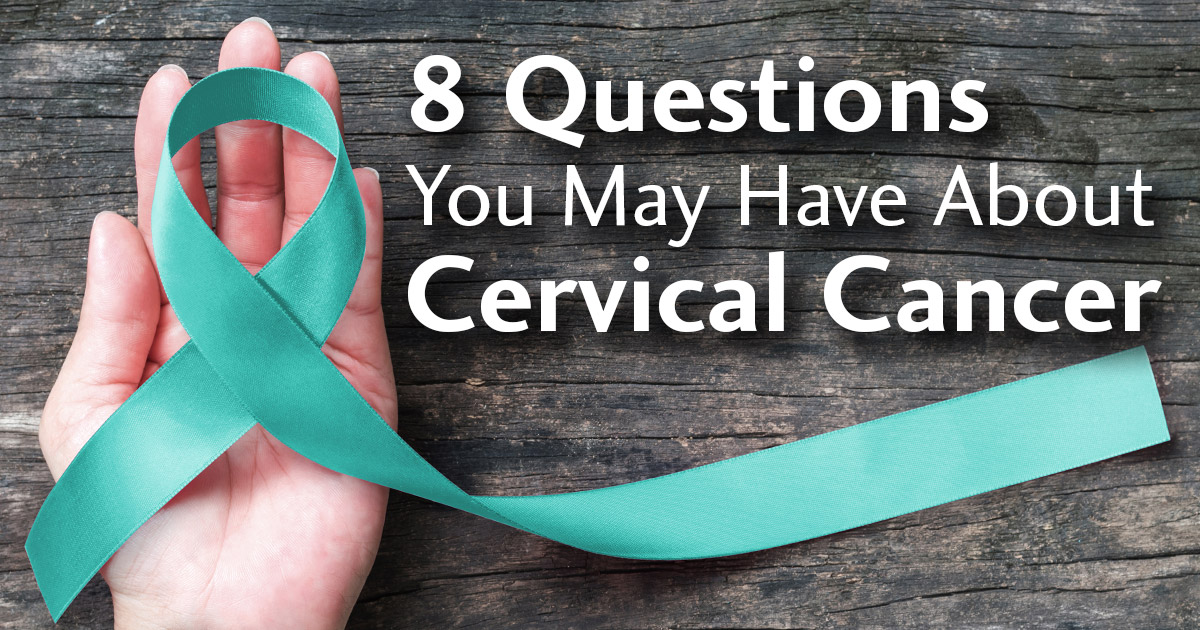January is cervical cancer awareness month. Learn more about cervical cancer and what you can do to protect yourself.
- What is cervical cancer?
Cancer is a disease that happens when cells in our bodies grow out of control. Cancer mostly starts in one place and can spread to other parts of the body. We name types of cancer after the body part it started from. Cancer that starts in the cervix is called cervical cancer. The cervix is the part of the reproductive system that connects the vagina (birth canal) to the uterus (the womb). - How do you get cervical cancer?
Cervical cancer is almost always caused by human papillomavirus (HPV). HPV is a common virus that can be passed from person to person through sexual contact. There are many types of HPV. Some types can cause changes to a woman’s cervix which can lead to cancer. HPV is very common – most people get it at some point in their lives! HPV does not have symptoms and can go away on its own. But if HPV does not go away, it can cause cancer. - Who can get cervical cancer?
Any woman can get cervical cancer but women over 30 are at risk the most. There are certain things that can add to your risk of cervical cancer. Smoking, having HIV, giving birth to three or more children, and having multiple sexual partners can make your more at risk for cervical cancer. Women who do not get cervical cancer screenings regularly could have cancer and not know it. - What are the symptoms of cervical cancer?
In the early stages of cervical cancer, you may not notice any changes or symptoms. When cervical cancer has been around longer, it can cause bleeding or discharge from the vagina that is not normal for you. If you have these signs, it is best to make an appointment with your doctor. - Can cervical cancer be prevented?
Cervical cancer can be prevented by getting the HPV vaccine from your doctor. HPV vaccines prevent infection from the types of HPV that cause cancer. Even males can get HPV and should be vaccinated. You can get the HPV vaccine as early as 9 years old. Even if you have the HPV vaccine, you should be screened for cervical cancer.
There are two types of cervical cancer screenings: the Pap test (Pap smear) and an HPV test. A Pap test looks for changes in the cells of your cervix that could lead to cancer. The HPV test looks for the human papillomavirus, which can lead to cancer. These tests can be done at your doctor’s office. If there are cell changes in the cervix, they can be treated before they turn into cancer. - When should women start getting Pap tests?
Women should start getting Pap tests when they are 21 years old. If a Pap test comes back normal, the doctor may tell you that you do not need another Pap test for 3 years. - How is cervical cancer diagnosed and treated?
There are a few types of treatment, depending on how far the cancer has spread. Surgery may be used to remove the cancer tissue through an operation. Medicine used to shrink or kill the cancer can be given through chemotherapy. Radiation is a high-energy ray that is used to kill cancer. There are side effects and risks to each type of treatment. - Is cervical cancer curable?
Cervical cancer can be cured if found early and treated quickly. It is important to get screened regularly so that cancer can be treated early if found.
Sources:

